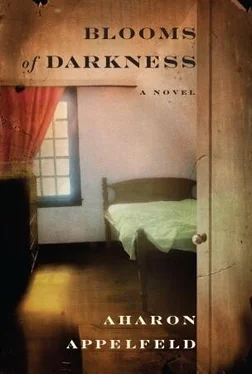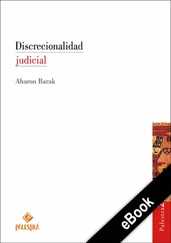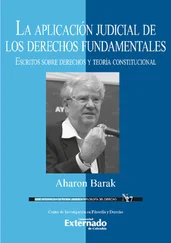Some time ago I left the closet. Mariana didn’t come back to me as she promised, and the cook, Victoria, threatened to turn me in. I have no choice but to escape to the forest. Now I’m sitting in the woodshed and preparing myself to leave. Don’t worry, I’ll get to the forest and I’ll find shelter there, but if fortune doesn’t favor me, and I’m caught or I disappear, you should know that you were in my thoughts all the time .
Hugo returns the notebook to the knapsack and tears flood his face.
The sky changes hue, and pink rays break through the horizon. From the woodshed he can see the meadows and the house wrapped in vines. From Mariana’s room, he saw only parts of them, and now they are revealed in full. I’m beginning a new life , he says as he gathers his strength.
While Hugo is standing at the entrance to the woodshed, preparing to throw the knapsack over the fence and then jump over after it, a desperate voice is heard calling, “Hugo, Hugo, where are you?” For a moment he’s afraid it’s an illusion, but the voice is heard again, with the same desperate tone.
“I’m here,” he answers.
“I can’t see you.”
“I’m outside.”
“Come back to me.”
He approaches the opening and crawls back in. When he pokes his head out of the darkness, he sees Mariana kneeling.
“Mariana,” he whispers.
“Good God, why did you go outside?”
“Victoria threatened to turn me in.”
Even in the darkness he can see how much she has changed. Her face has become narrow, her hair is pulled back, and her eyes are sunken. The way she holds him in her arms is also different. “I’ve stopped drinking,” she says, and lowers her head.
Hugo doesn’t hold back and kisses her face.
“I had some hard days, and I decided to dry out and come back here. Here I have my own room, food, and a salary. Outside they abused me.”
Hugo remembers her previous declines, but not one like this. Mariana tells him that for a week not a drop has passed her lips. Drying out depresses her, but she has no choice.
“I’ll help you,” he says.
“Without brandy, my life isn’t worth living. All the joy and all the desire for life have abandoned me, but I have no choice. Outside they persecuted me like a mangy dog.”
Hugo holds her hand, kisses it, and says, “Don’t worry, Mariana. I’ll do whatever you tell me to do.”
“I thank you very much,” she says in a voice unlike any he has heard her utter.
Mariana immediately starts tidying the room, mopping the floor, and returning the pictures to the shelves. Her image once again looks out from every corner — young and full of lust for life.
“What did you do during the days I wasn’t here?”
“I sat in the corner and thought about you.”
“I looked for someplace that would be right for us, but I couldn’t find anything. I wandered from place to place, and everywhere they recognized me and persecuted me, the way that hypocrite Victoria was abusing you. What were you going to do?”
“Run away to the forest to look for you.”
“My hero.”
In the afternoon, Mariana runs a bath for Hugo and says, “Now I’ll wash my man. I abandoned him for a long time, and now he’ll be mine again.” For a moment her old tone of voice comes back to her, and the light returns to her face.
That night Hugo sleeps with Mariana in the big bed. Her soft body and her perfumes surround him with sharp pleasure. “You’re mine, you’re all mine. Men are bullies and coarse in spirit, and only you are strong and sweet.” Thus, with a wave of her hand, Mariana drives away the darkness, which just a few hours earlier was about to smother him.
But over the next few days, there is no light. Mariana keeps saying that without brandy she’ll go out of her mind. The guests don’t complain about her, but some of them say, “What’s the matter with you? Where has the fire in you gone?”
Mariana is suffering, and Hugo can feel it in everything she does. She scrubs the room every day, and shakes out the mattress and the blankets. Hugo notices that her movements are fierce, and that when she lights a cigarette, her fingers tremble.
Mariana’s guests are soldiers and officers, and Hugo soon learns that the war is going badly for them now. Many soldiers are being sent to the front. Once he hears one of them tell her, “Tomorrow they’re sending me to the East. Take this ring with my name engraved on it. I passed the nicest hours of this cursed war with you.”
Hearing his words, Mariana bursts into tears.
“Why are you crying?”
“I feel sorry for you,” she says, and cries some more.
One evening she brings Hugo a bottle of brandy and says, “You’ll watch over it. You won’t let me drink too much. I’ll sip a little before my morning sleep, and a little at night, when I don’t have clients. You’ll be on watch and say to me, Mariana, now you’re not allowed to drink. You’re smart and know exactly when I’m allowed to drink and when it’s forbidden. I lose track. You’ll be my bookkeeper.”
Hugo knows in his heart that the job is a thankless one, and the day is not far when Mariana will say, Don’t mix in, don’t tell me what to do . But he does what she wants and says, “I’ll watch over the bottle, and if it’s necessary, I’ll remind you.”
That night Hugo dreams he’s in a field full of flowers and trees, and his parents are sitting by his side. They used to take day trips to the Carpathians every season. Their favorites were the spring and the summer. They would explore and would wonder at the landscapes. Then they would sit on the ground and eat a light meal, speaking little. The wagon driver would wait for them next to one of the tall trees. He usually drank a drop too much and became merry.
On the way back, he would joke about the Jews, who don’t drink and always retain their sanity. “Sanity, you should know, Doctor,” he said to Hugo’s father, “does not always help in life. Too much sanity spoils the flavor of life. You take three or four drinks, and you’re immediately in a world where everything is good.”
“Excessive drinking is harmful to your health,” Hugo’s father would respond.
“Even somebody who takes care of his health will get sick in the end.”
“Lying in hospital isn’t a pleasure I’d wish on myself.”
“Sooner or later everybody ends up there,” the wagon driver would crow victoriously.
Hugo’s father liked the wagon drivers. He would listen to their wishes and their confessions, and sometimes he tried to deflate somewhat their baseless self-assurance. But of course nothing worked, and they stuck to their guns. They were planted like boulders in their way of thinking. At the end of the argument, they would say, “The Jews are stubborn, a stiff-necked people. You can’t change their minds.”
Hearing that, Hugo’s father would burst out laughing and say, “You’re right.”
“What good does it do me to be right?” the driver would say, and then join in the laughter.
This time, in his dream, it’s different. Hugo’s mother looks at him in wonderment, as if to say, Why won’t you tell me what happened to you?
Hugo recovers and says, “What is there to tell? I was in Mariana’s closet.”
“I know that. After all, I’m the one who brought you to her. But what did you see there, and what did you hear, and how did the days pass for you?”
“That’s a long story,” he replies ambiguously.
“Will we ever hear the whole story from you?”
“What is there to tell?” He tries again to evade her.
“Everything interests us,” his mother says in a tone familiar to him.
Читать дальше












